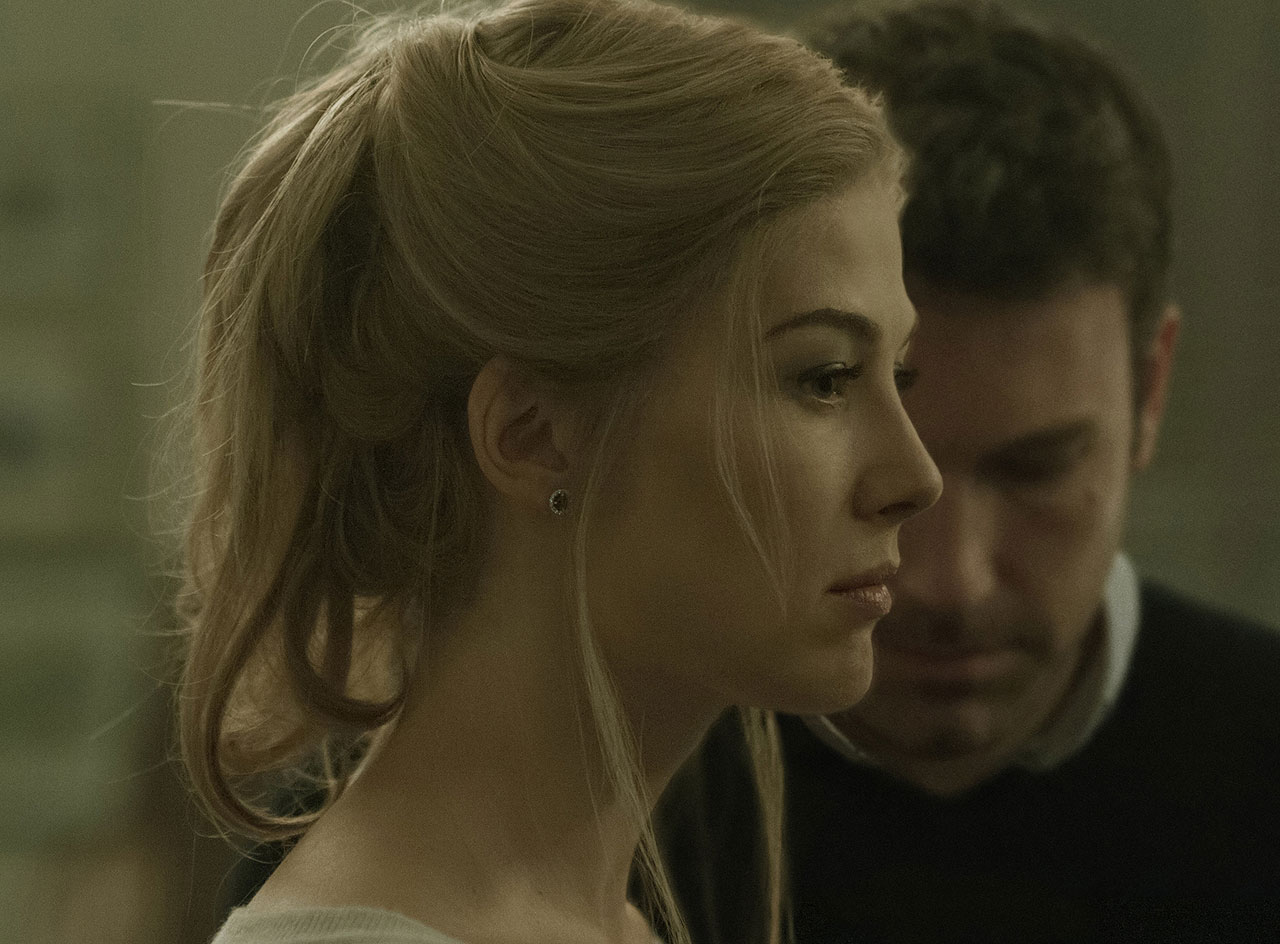News feed

Rosamund Pike and Ben Affleck, as seen in David Fincher’s adaptation of Gillian Flynn’s global grip-lit sensation, Gone Girl
Credit: 20th Century Fox
Lucie Whitehouse, author of four novels including Before We Met and most recently Keep You Close (out now), has spent no shortage of time ruminating on the reasons for our fascination with psychological thrillers – that unique subset of fiction that delves deep into the profoundly flawed relationships and minds of often unreliable (and unstable) narrators.
With novels like Gone Girl and The Girl on the Train receiving top honours on international best seller lists while their cinematic adaptations score even bigger at the box office, it appears as though our fixation with the genre and its femme fatale protagonists is fast reaching fever pitch.
Herewith, the Brooklyn writer breaks down the four main reasons you likely find psychological thrillers to be such a thrill.
“Some think the delirium started with Gone Girl but readers of Before I Go To Sleep and Rosamund Lupton’s Sister had symptoms even before Flynn-mania swept the globe.
“Experts argue over what to name it – psychological suspense or ‘chick noir’; maybe ‘grip-lit’? – but whatever you call it and however it began, one thing’s for sure: a new and virulent strain of psychological thriller is at large. The Girl on the Train, The Silent Wife, I Let You Go, Disclaimer, In a Dark, Dark Wood, Luckiest Girl Alive, The Widow – one after another, they’ve had us gripped.
“Here are four reasons why we can’t resist them.”
Killer hooks
These novels are puzzles and fiendish ones. Right at the start, they snag us with a major question – What’s happened to Amy Dunne? Did The Widow’s husband really take the little girl he was accused of abducting? – then twist this way and that, keeping us guessing to the very end. And whatever’s going on, it’s not good. These books are shadowy places of ambiguous morality. Right from the start – ‘I am running’ (In a Dark, Dark Wood); ‘I have a meanness inside me, real as an organ’ (Dark Places) – there’s the frisson of real danger.
The real world (nearly)
The world of ‘grip-lit’ is one we almost know. The stories are set in apparently ordinary homes in familiar cities, which makes it so easy to imagine how there but for the grace of god. Unlike traditional thrillers – stories about spies, bombs, shoot-outs – these books deal with the most personal subject-matter: our relationships, our sex lives, our children. Often, the danger is not only close by but inside our homes where we’re supposed to be safest. Home is where the heart is, after all. And nothing says ‘up close and personal’ like the style in which they’re written: first person. Many of these books are narrated in the first person or a third person so tight over the main character’s shoulder that we have special access to her private thoughts and her fear.
Plumbing our darkest fears
Waking in a bedroom we don’t recognise (Before I Go To Sleep); marriage to a dangerous psychopath (Gone Girl and my own Before We Met); the publishing of our darkest secret (Disclaimer) – these stories allow us to explore our nightmares without putting ourselves in any actual danger, while also exploring out darkest desires. These women do what we don’t dare to. Elaborate, even murderous revenge on a cheating husband; wild sex with a handsome stranger on the heath – these women act on the fantasies we may have but know are too dangerous or shameful (or plain illegal) to act on in real life.
Women like us
And yet (with the exception of Amy Dunne, we hope), we know these people. They are complicated women, complex, funny, flawed. Like us. They’re also resourceful. These are definitely not victims. These women get into and out of trouble (if they get out) independently. But the unease lingers. The questions these books ask are so deeply unsettling that they stay with us long after we’ve finished reading. Who can you trust? Can we ever really know another person? And just how far would you go to protect yourself – if you had to?
Keep You Close by Lucie Whitehouse is published by Bloomsbury, $27.99, out now.










